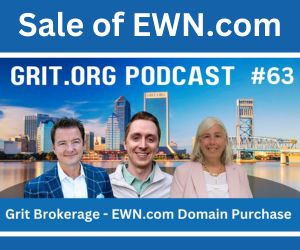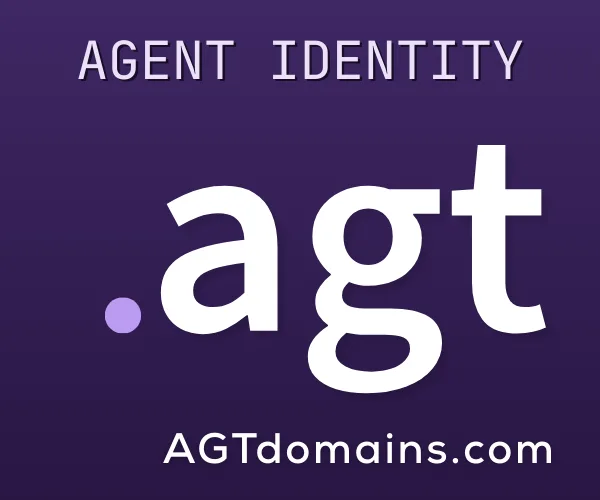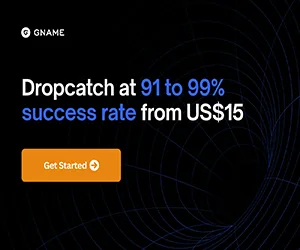Steven Tey is one of those guys that, the more you learn about him, the more you think to yourself, “Damn, why can’t I be more like him?” He is a multifaceted entrepreneur whose work spans quite a range of innovative projects, from his early days building OneWord.Domains, a platform for discovering available single-word domains, to his more recent ventures, Steven has consistently pushed the boundaries of technology and digital branding. His latest success, Dub.co, exemplifies his unique approach to combining product development with a strong brand identity. Here, we explore Steven's journey, the strategic choices behind his projects, and his insights into the domain industry.
Mike: How did your previous projects such as OneWord.Domains influence the development of Dub.co? What lessons from your earlier ventures have you applied to Dub.co?
Believe it or not, One Word Domains was actually my first-ever web project – I built it to learn how to code. Having that as my first project has actually given me a lot of valuable insights when I started building Dub! As you can imagine, there are many parallels between domains and short links – and since day one, I have been able to take my learnings when building OWD to make Dub a great product from both the UX side of things as well as the underlying infrastructure. From making it easy for users to connect their domains to Dub, to using Product Hunt / Hacker News to marketing the product effectively since the early days (I did that for both OWD & Dub) – there are definitely a lot of shared lessons/experiences between the two ventures.
In fact, we actually have a couple of domainers using Dub for their landing pages/click tracking – some have even added thousands of domains in their portfolio to Dub! And now, we’re adding a new domain-purchasing flow in Dub, so it’s really a full circle moment for me personally :)
Mike: Time management is something we all struggle with. Can you share how you manage and prioritize multiple projects simultaneously?
Ironically, I learned the hard way that splitting your time between multiple projects is not sustainable in the long run – especially if you’re trying to build a billion-dollar/industry-upending business. This is why ever since I went full-time on Dub earlier this year, I’ve delegated my old side projects to several developers that I trust and have been fully hands-off on those for the majority of 2024.
Mike: On your website StevenTey.com, it says you are a programmer, a writer, and a pianist. Do those activities complement each other in some way?
Definitely! My background as a writer & pianist has been fantastic for making me a better developer and marketer.
- Developer – one of the hardest things in programming is naming & writing concise code, and my time as a writer gave me the experience to do this well.
- Marketer – being able to craft marketing copy that sells is incredibly important for building a successful business, and my background as a writer certainly helps with that.
Mike: Explain how one might leverage Dub.co. What is it and how does it work?
Dub.co is a next-generation link management platform loved by modern marketing teams like Product Hunt, Perplexity, Raycast, and more. With Dub, you can easily create & manage short links at scale and get world-class analytics for them. Here’s how we differ from existing incumbents in the space:
- Unique & powerful features like custom social media cards and powerful analytics
- Beautiful & intuitive user interface & experience (check out our Bitly comparison page)
- Superior developer experience (native SDKs for TypeScript, Python, Go, Ruby, and PHP)
As a domainer, you can leverage Dub to supercharge your domaining business in several ways:
- Use Dub as a lander for your domains and get real-time click analytics on your domains. We’re also beta testing a new product (Dub Conversions) that will let you track conversions for your short links, which can be helpful for understanding which marketing channels are the best at translating to signups & sales.
- Create a branded link shortener tool and flip your domain for $$$ – here’s how Tim from Pallyy bought dm.new for $400 and flipped it for $8K using Dub.
Mike: You clearly understand domain names and have utilized several different TLDs. What advice do you have for the domaining community on TLDs?
I recently wrote an article on how to pick the right custom domain for your short links where I discuss the different options companies can use for their short link domains. So far, domain hacks aside, .link and .fyi have been some of the more popular TLDs for short links, as seen from real-world data on Dub. gTLDs are generally safer than ccTLDs too since ccTLDs are subject to the jurisdiction of their originating countries, which means that the government of that country can seize your domain at their own volition.
Mike: Where do you get your ideas, how do you decide which projects to pursue, and what criteria do you use to assess their potential?
In the past, it’s always been two factors:
- To scratch my own itch – One Word Domains was precisely that, since I needed an easier way to discover and purchase brandable one-word domains.
- To learn a new technology – Extrapolate is a good example of that, I built it to learn AI development
Now it’s more about discovering creative ways to showcase Dub’s technologies and market Dub as a product. For example, we’ve launched several “side projects” at Dub this year:
- spti.fi – a branded Spotify link shortener built with Dub’s link infrastructure (over 11K links created)
- Git.new – a branded GitHub link shortener built with Dub’s link infrastructure (over 4K links created)
- OSS Gallery – a crowdsourced list of the best open-source projects on the internet – built with Dub’s link & analytics API (1,000+ stars on GitHub)
Mike: What importance has the domain name you chose played in the success of your projects?
Immensely! From my old side projects like ShareG.PT and OSS.Gallery – all the way to the various free branded link shorteners we have on Dub, the ability to find the right domain name for these projects have been crucial to their success.
Mike: Finally, looking back on your journey, what would you have done differently along the way?
Probably should’ve went full-time on Dub.co sooner – the amount of satisfaction & learnings I experience on a daily basis with Dub is magnitudes more than what I got working a day job + building side projects.




